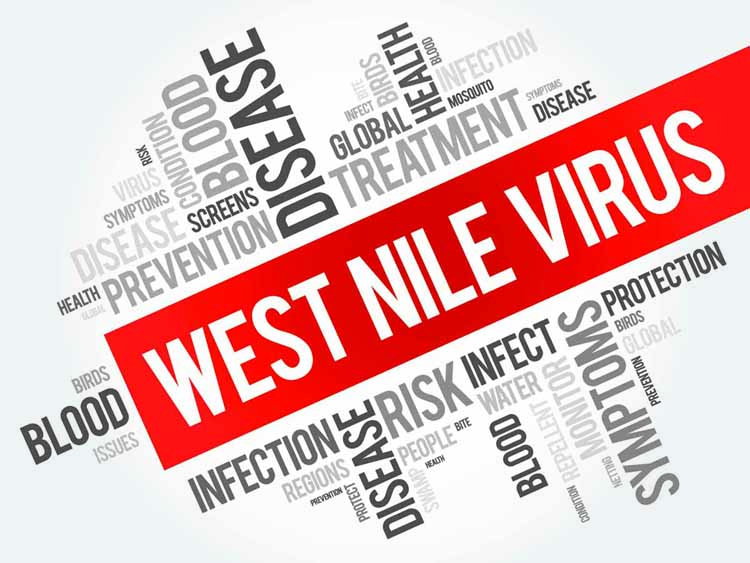The West Nile Virus was first discovered in the United States in the fall of 1999. It quickly spread across the US and today has been found in all of the lower 48 states, much of Canada, and south into Mexico and Central America. West Nile Virus was first detected in Illinois in the fall of 2001 and in 2002 caused the largest mosquito borne Encephalitis outbreak in the states history, with 884 human cases. Since this initial outbreak West Nile has not gone away.
You are most likely to get West Nile late in the Summer. This is when the mosquitoes that spread the disease are most common. Even if mosquito populations are low and you are not being bitten at night you should still use insect repellent.
SYMPTOMS
No Symptoms. Most people (8 out of 10) infected with West Nile virus do not develop any symptoms.
Fever. In some people, about 1 in 5, who are infected develop a fever with other symptoms such as headache, body aches, joint pains, vomiting, diarrhea, or rash. Most people with this type of West Nile virus disease recover completely, but fatigue and weakness can last for weeks or months.
Serious Symptoms. A few people, about 1 in 150, who are infected develop a severe illness affecting the central nervous system such as encephalitis (inflammation of the brain) or meningitis (inflammation of the membranes that surround the brain and spinal cord).
- Symptoms of severe illness include high fever, headache, neck stiffness, stupor, disorientation, coma, tremors, convulsions, muscle weakness, vision loss, numbness and paralysis.
- Severe illness can occur in people of any age; however, people over 60 years of age are at greater risk. People with certain medical conditions, such as cancer, diabetes, hypertension, kidney disease, and people who have received organ transplants, are also at greater risk.
- Recovery from severe illness might take several weeks or months. Some effects to the central nervous system might be permanent.
- About 1 out of 10 people who develop severe illness affecting the central nervous system die.
DIAGNOSIS
- See your healthcare provider if you develop the symptoms described above.
- Your healthcare provider can order tests to look for West Nile virus infection.
TREATMENT
- No vaccine or specific antiviral treatments for West Nile virus infection are available.
- Over-the-counter pain relievers can be used to reduce fever and relieve some symptoms
- In severe cases, patients often need to be hospitalized to receive supportive treatment, such as intravenous fluids, pain medication, and nursing care.
If you think you or a family member might have West Nile virus disease, talk with your health care provider.
Cases in the USA compared to Illinois
| Year | Illinois Human Cases | Total Cases in USA |
| 2000 | Not Present | 21 |
| 2001 | 0 | 66 |
| 2002 | 884 | 4156 |
| 2003 | 54 | 9862 |
| 2004 | 60 | 2539 |
| 2005 | 252 | 3000 |
| 2006 | 215 | 4052 |
| 2007 | 101 | 3630 |
| 2008 | 20 | 1356 |
| 2009 | 5 | 720 |
| 2010 | 61 | 981 |
| 2011 | 34 | 712 |
| 2012 | 282 | 5387 |
| 2013 | 116 | 2374 |
| 2014 | 40 | 2085 |
| 2015 | 67 | 1732 |
| 2016 | 136 | 2038 |
| 2017 | 86 | 1984 |
| 2018 | ||

